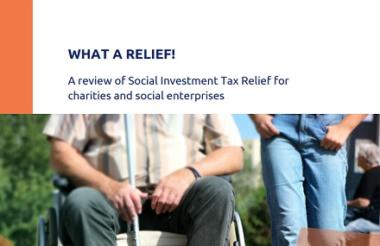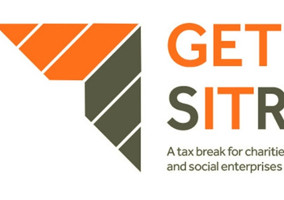The government’s social investment tax relief (SITR) has been much less effective than predicted, according to a new report.
SITR allows an investor to claim back 30 per cent of the value of an unsecured loan to charity against their tax bill. The relief, which was introduced by the government in 2014, is only open to individual investors.
What a Relief, written by David Floyd of Social Spider CIC, draws attention to the fact that SITR supported just £5.1m-worth of social investment in the three years since its launch in 2014, with 35 deals completed in that time.
This is much lower than the treasury’s prediction that SITR would be used to support £83.3m worth of social investment in that time.
'Government to blame'
Writing in a blog reflecting on the report, Floyd said “it would be an understatement to say that the early results have been disappointing” and that the government is to blame.
He said: “Dealflow has since quickened from snail-like to tortoise-esque. As of November 2018 – over four years after the relief was launched – Big Society Capital’s open source database showed £9.5m worth investment raised via the 53 deals for which full information was available.
“Government is significantly to blame for what has (and hasn’t) happened. While SITR can, in theory, be used to support most trading activities undertaken by charities and social enterprises, there is a list of ‘trades’ that do not qualify for the relief.”
He said property, energy and leasing all do not qualify for the relief despite being “some of the business activities most relevant for social investment”.
Floyd added that there has also been a “confused and inefficient process” for SITR investments, with some charities waiting nine months for confirmation that investment offer is eligible for the relief.
However, he said that relief has opened up sources of finance for some charities that would not have otherwise existed.
Call for greater relief
The report recommends that the government should amend SITR to offer investors 50 per cent rather 30 per cent relief.
It also calls for the government to amend legislation to enable the relief to be more easily used by charities with trading arms.
The report calls on social investors including trusts and foundations to provide match funding for SITR eligible investments and to help support charities to create investment offers and connect with potential investors.
The goverment has committed to reviewing SITR this year.
Stephen Muers, head of strategy and market development at Big Society Capital, agreed that the figures regarding the use of SITR "show lower levels of take-up than first anticipated".
However, he said that SITR "has great potential, providing the right changes are made following the government’s consultation due later this year.
He said:
"We would also suggest that the seven-year age limit and the lifetime limit of £1.5m be reviewed.
"We look forward to responding to the government’s consultation, and working together to make the SITR process simpler and more accessible.”
|
Related articles











